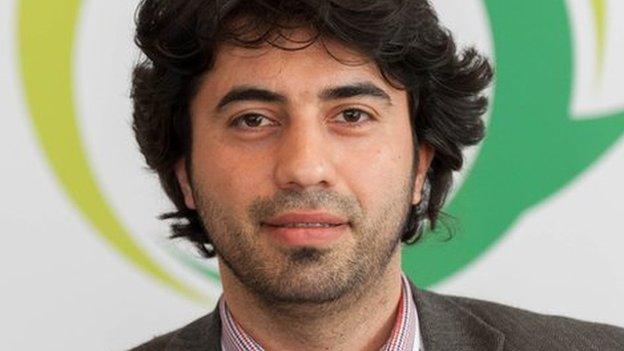Corruption inquiry at Council of Europe over Azerbaijan
- Published
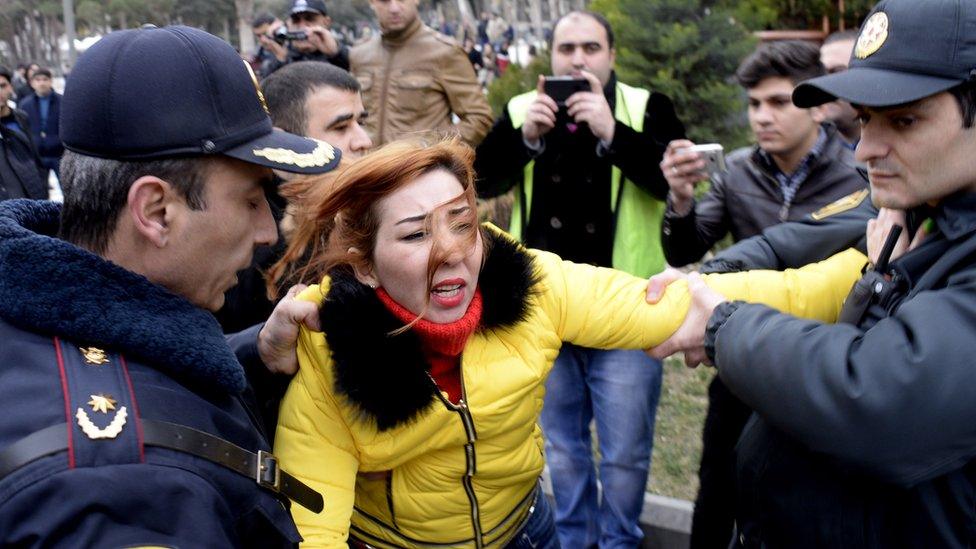
Azerbaijan has rounded up dozens of opposition activists (2015 photo)
Europe's top human rights watchdog, the Council of Europe, has launched an investigation into alleged corruption at the council involving Azerbaijan.
The criticisms concern some members of the Parliamentary Assembly of the Council of Europe (PACE), accused of doing favours for Azerbaijan.
The oil-rich ex-Soviet state has cracked down on political dissidents.
There are suspicions that Azerbaijan influenced PACE's rejection of a report on Azeri political prisoners in 2013.
Azerbaijan is among the 47 member nations of the Strasbourg-based Council of Europe.
The council - not part of the EU - monitors compliance with the European Convention on Human Rights, external, and judges in Strasbourg enforce it.
In January 2013 PACE rejected a report , externalby German Social Democrat MP Christoph Strässer, which deplored human rights abuses in Azerbaijan and urged the authorities there to release political prisoners.
The Azeri government denies that charges against opposition activists are politically motivated.
Opponents of President Ilham Aliyev have been jailed on various charges, including tax evasion, spying and weapons possession.
Top judges
Three top international human rights lawyers will investigate the PACE corruption allegations and will report their findings by the end of 2017. They can recommend action against any PACE members implicated in corruption.
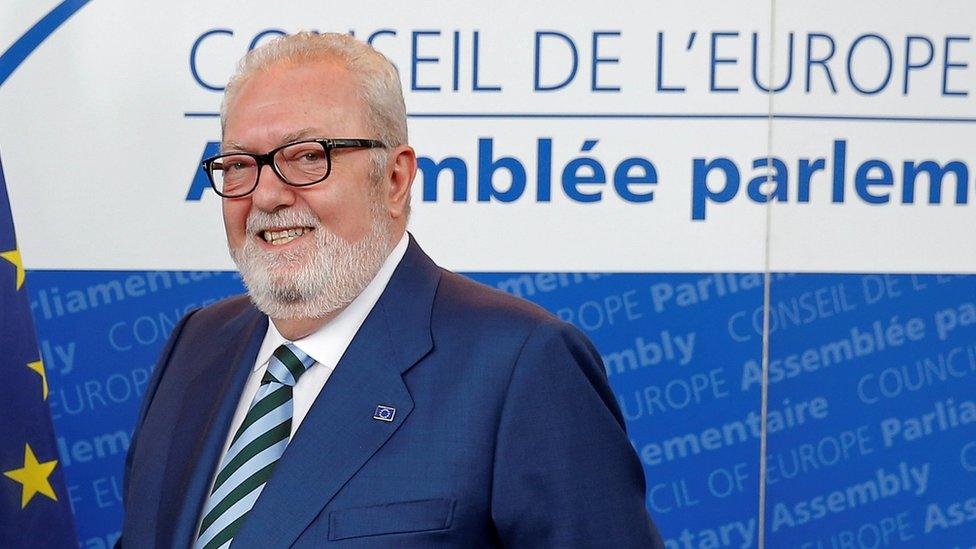
The pressure is on PACE President Pedro Agramunt to root out alleged corruption
The investigators are:
Sir Nicholas Bratza from the UK, a former president of the European Court of Human Rights (ECHR)
Jean-Louis Bruguière, a top anti-terrorism judge from France
Elisabet Fura, a Swedish former judge at the ECHR
PACE elects the judges at the ECHR, whose human rights rulings are binding on Council of Europe states.
As part of the inquiry, PACE plans to revise its code of conduct.
An investigation published in December, external by the European Stability Initiative (ESI), a human rights think-tank, alleged that some parliamentarians in PACE had engaged in political lobbying for Azerbaijan. There were claims that some received Azeri payments.
Azerbaijan bans online insults to leader
In March a top Council of Europe official, Secretary General Thorbjorn Jagland, wrote to PACE President Pedro Agramunt, external, urging him "to establish an independent external investigation body without any further delay".
A large group of European MPs in PACE made a similar plea in January. They said PACE's integrity was threatened by "recent, serious and credible allegations of grave misconduct" by some fellow MPs.
Civil society groups in Europe sent an open letter to PACE, external in April, saying an independent investigation must "shed light on hidden practices that favour corruption".
- Published5 February 2015
- Published1 December 2016
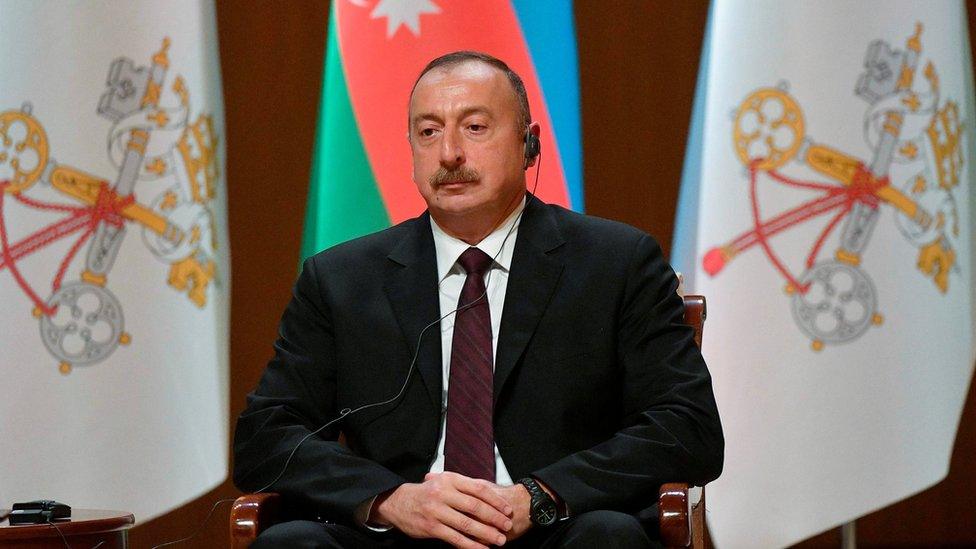
- Published1 September 2015
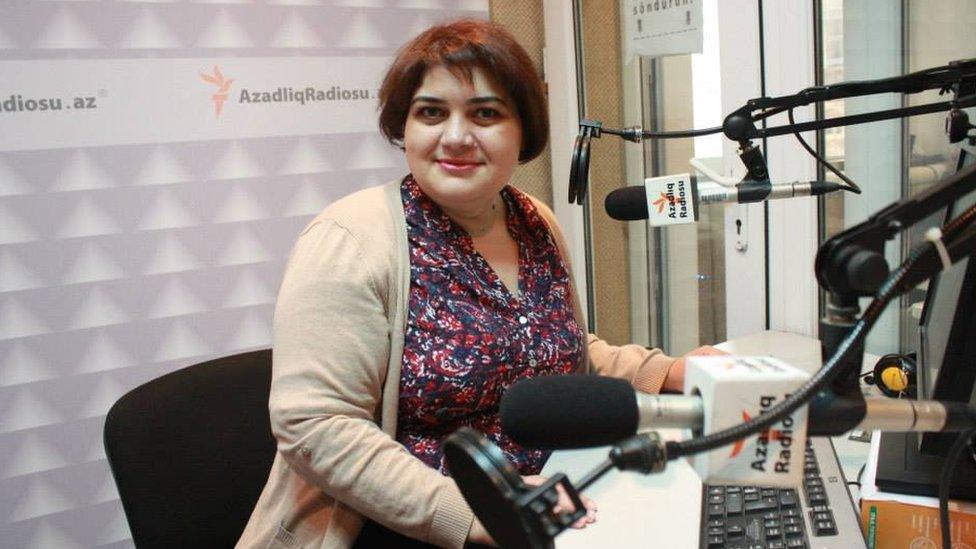
- Published17 October 2013
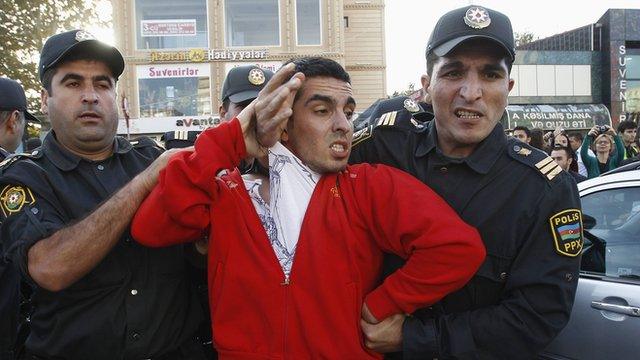
- Published17 February 2015
